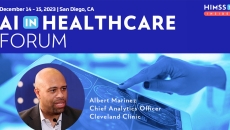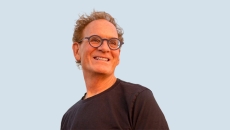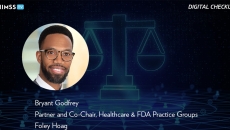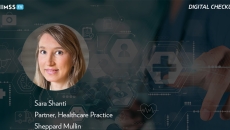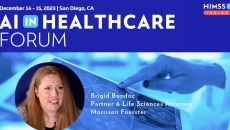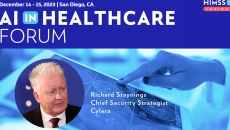AI
Albert Marinez, chief analytics officer at Cleveland Clinic, relates how the health system uses AI to ease provider workflow, the responses it has received from physicians and lessons learned throughout the implementation process.
Joe Lanzisero, VP of Zeitgeist Design & Production and former Walt Disney imagineer, discusses crafting experiences that captivate and how those methods can be applied within healthcare.
Bryant Godfrey, partner and cochair of healthcare and FDA practice groups at Foley Hoag, discusses the various agencies regulating AI in healthcare, potential inconsistencies in frameworks and expectations for regulation in the coming year.
Sara Shanti, partner at Sheppard Mullin, discusses the intersection of healthcare and technology, how to establish trust and transparency within AI, and questions she receives pertaining to virtual therapy, particularly in mental health.
Providers are responsible for navigating variable coverage schemes while caring for patients, says Jay Rughani, investment partner at Andreessen Horowitz. AI and LLMs advancements can help fix this trajectory and reduce administrative burnout.
Digital health leaders say frameworks already exist that can be adopted for AI regulation, but going too far with rules could stifle innovation.
Brigid Bondoc, partner and life sciences attorney at Morrison Foerster, discusses government priorities pertaining to federal regulation of AI, where complications may arise, and concerns she has heard related to policy decisions.
Also, researchers from India have developed an AI model that can detect indications of carpal tunnel syndrome in ultrasound videos.
Cybersecurity officers are up against well-equipped adversaries like crime syndicates, says Richard Staynings, chief security strategist at Cylera. AI can help automate and improve cybersecurity tools if adequately implemented.
From the end of the Public Health Emergency to the launch of ChatGPT and the Apple Vision Pro, executives reflect on what stood out to them this year.
